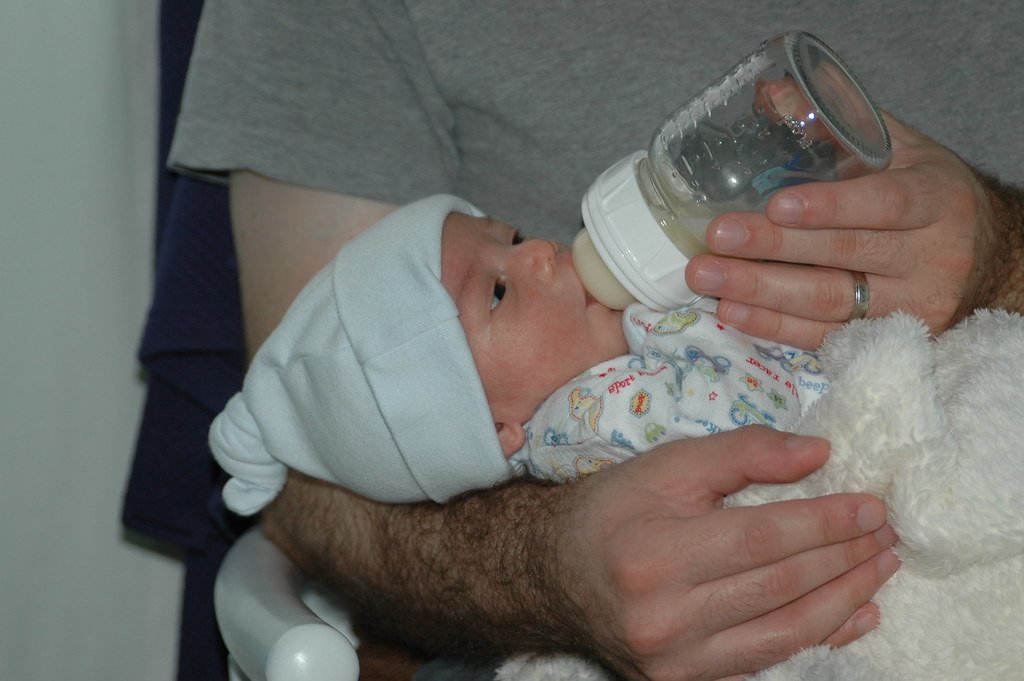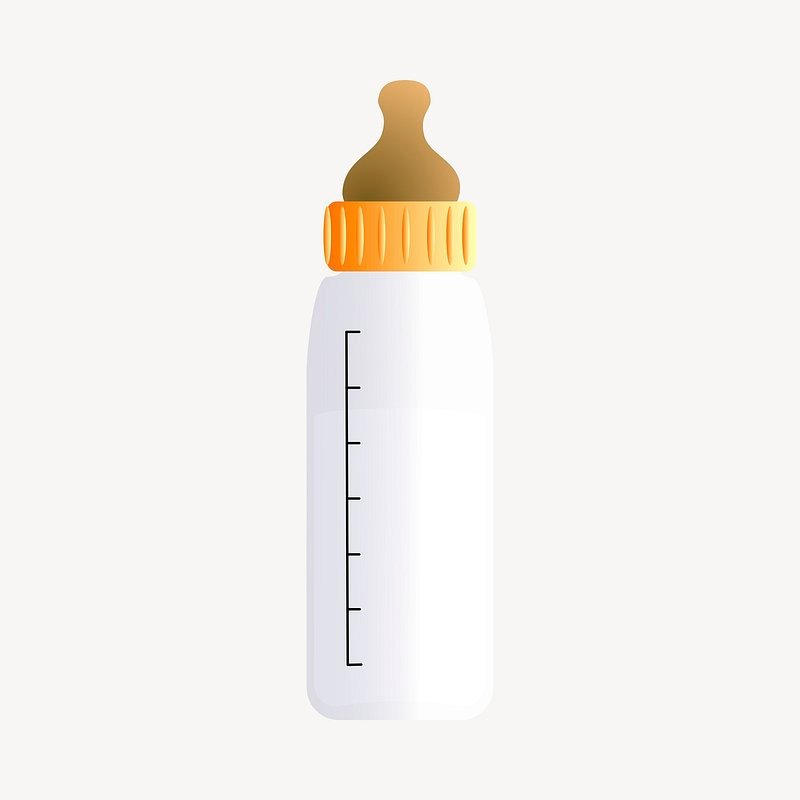From the moment a baby is born, parents are bombarded with countless advice and opinions on the best way to care for their little one. When it comes to feeding, the debate between breast milk and formula seems never-ending. Despite the growing number of women opting for formula feeding, there are still prevalent myths that cloud the understanding of this choice. In this article, we will embark on a journey to debunk some of the most common myths surrounding formula feeding. With a neutral perspective, we aim to provide clarity and shed light on the realities for parents who choose this method of nourishing their precious bundle of joy. So, let’s unravel these myths and separate fact from fiction, ensuring that every parent can make informed decisions.
Table of Contents
- Myth #1: Formula-fed babies are less healthy and have weaker immune systems
- Myth #2: Formula feeding is easier and more convenient than breastfeeding
- Myth #3: Formula milk lacks essential nutrients for babies’ growth and development
- Myth #4: Formula feeding prevents bonding between parents and babies
- Myth #5: Formula-fed babies are more likely to become obese in adulthood
- Q&A
- Insights and Conclusions

Myth #1: Formula-fed babies are less healthy and have weaker immune systems
Let’s debunk the age-old myth that formula-fed babies are less healthy and have weaker immune systems. The truth is, while breastfeeding does offer unique health benefits, formula-fed babies can also grow up just as healthy and thrive.
Here are some important facts to consider:
- Proper nutrition: Formula milk is specifically designed to provide all the necessary nutrients for a baby’s growth and development. It is carefully formulated to include essential vitamins, minerals, proteins, and fats that closely resemble breast milk.
- Quality control: Formula milk undergoes rigorous testing and quality control measures to ensure its safety and nutritional content. This ensures that babies receive a consistent and reliable source of nutrition.
- Access to nutrition: Formula feeding can be a practical option for families who may face challenges with breastfeeding, such as low milk supply or medical conditions. It provides an alternative method to ensure babies receive the nutrition they need.
While breastfeeding does offer the added benefits of antibodies and immune-boosting properties, formula-fed babies can still develop strong immune systems through other means, such as vaccinations, a healthy diet, and regular medical check-ups.
It’s essential to remember that the well-being of a baby is influenced by numerous factors, including a loving and nurturing environment, proper healthcare, and parental bonding. So, whether a baby is breastfed or formula-fed, their health and immune system depend on various factors in their overall care.

Myth #2: Formula feeding is easier and more convenient than breastfeeding
Breastfeeding can often be perceived as complex and time-consuming, leading to the myth that formula feeding is a simpler and more convenient option. However, this is far from the truth. Let’s debunk this myth and explore the realities of both breastfeeding and formula feeding.
The Benefits of Breastfeeding
- Bonding: Breastfeeding creates a unique connection between a mother and her baby, fostering emotional closeness and comfort.
- Immune System Boost: Breast milk is packed with essential antibodies and nutrients that help protect your little one from infections, diseases, and allergies.
- Convenience: No washing or sterilizing bottles; breast milk is always at the right temperature and ready to nourish your baby anytime, anywhere.
The Myths around Formula Feeding
While formula feeding may seem hassle-free at first, it is crucial to dispel some common misconceptions surrounding this alternative:
- Expense: Contrary to popular belief, the cost of formula feeding can add up significantly over time with the expense of formula, bottles, sterilizing equipment, and other supplies.
- Preparation: Formula feeding entails meticulous preparation, including measuring and heating water, mixing the formula correctly, and ensuring sanitary conditions.
- Availability: Unlike breastfeeding, where your milk is always available and suited to your baby’s needs, formula feeding requires planning to make sure you have an ample supply at hand, especially for outings or emergencies.
It’s important to remember that choosing between breastfeeding and formula feeding is a personal decision that should be based on what works best for both the mother and the baby. While there are benefits and challenges associated with each, it’s essential to gather the necessary information and seek support to make an informed choice that nurtures your little one’s health and happiness.

Myth #3: Formula milk lacks essential nutrients for babies’ growth and development
Many people believe that formula milk lacks the necessary nutrients for a baby’s optimal growth and development. However, this is simply not true! In fact, formula milk is specifically designed to provide babies with all the essential nutrients they need for healthy growth.
Formula milk is fortified with a wide range of nutrients that are crucial for a baby’s development, including proteins, carbohydrates, fats, vitamins, and minerals. These nutrients are carefully balanced to mimic the composition of breast milk as closely as possible. Additionally, formula milk is continuously improved and undergoes rigorous testing to ensure it meets the exceptional nutritional needs of babies.
It’s important to remember that every baby is unique and some may have specific nutritional needs or preferences. In such cases, it’s always recommended to consult with a pediatrician or healthcare professional to find the most suitable formula milk for your little one. So, rest assured, formula milk provides all the necessary nutrients for the healthy growth and development of your baby.

Myth #4: Formula feeding prevents bonding between parents and babies
While it is often assumed that formula feeding prevents bonding between parents and babies, this is actually just a myth. Bonding can occur between parents and their babies regardless of how they choose to feed them. The love and connection formed between a parent and their child go far beyond the act of breastfeeding.
Here are some important points to consider:
- Bonding is a lifelong process: Bonding is not solely dependent on feeding methods; it is a continuous journey that encompasses various aspects of a parent’s relationship with their child. It grows through loving interactions, quality time spent together, skin-to-skin contact, and responding to the baby’s needs.
- Formula feeding can still provide nurturing moments: While breastfeeding offers unique benefits, formula feeding allows other family members to actively participate in feeding, creating their own opportunities for bonding. Engaging in eye contact, talking, singing, and cuddling during feeding time can foster a strong emotional connection between parent and baby.
- Parental presence and responsiveness matter most: Whether a parent chooses to breastfeed or formula feed, what truly matters is their presence and attentiveness to the baby’s needs. Being responsive to cues for comfort, soothing, and interaction helps establish a secure attachment, nurturing the bond between parent and baby.
It is important to remember that every parent and baby duo is unique, and the choice to breastfeed or formula feed should be based on individual circumstances, preferences, and needs. Ultimately, the strength of the parent-child bond is not determined by the method of feeding, but rather by the love, care, and attention given by the parents.
Myth #5: Formula-fed babies are more likely to become obese in adulthood
Contrary to popular belief, there is no substantial evidence that formula-fed babies are more likely to become obese in adulthood than breastfed babies. While breastfeeding is undeniably beneficial for both the baby and the mother, it is essential to dispel this myth and provide a balanced perspective on infant feeding options.
It is important to note that numerous factors contribute to obesity in adulthood, including genetics, lifestyle, and diet. Formula feeding does not inherently predispose a baby to obesity. Obesity is a complex issue that cannot be solely attributed to the choice of feeding method during infancy.
Factors such as parental feeding practices, healthy eating habits, physical activity levels, and overall lifestyle choices play significant roles in obesity prevention. It is crucial for parents to focus on cultivating a nurturing environment that encourages a balanced and varied diet, promotes healthy eating habits, and fosters an active lifestyle for their children, regardless of how they were fed as babies.
Q&A
Is formula feeding inferior to breastfeeding?
Not at all! While breastfeeding has its unique benefits, formula feeding offers an excellent alternative for parents who are unable or choose not to breastfeed. Modern formula is carefully designed to provide all the essential nutrients that babies need for healthy growth and development.
Does formula feeding increase the risk of obesity in babies?
Contrary to popular belief, there is no concrete evidence to suggest that formula feeding alone leads to obesity in babies. Several factors, including genetics and overall diet, play a significant role in determining a child’s weight. Responsible feeding practices, such as ensuring appropriate portion sizes and offering a balanced diet, can help prevent obesity regardless of the feeding method used.
Is it true that formula-fed babies have weaker immune systems?
No, it is not true. While breast milk contains valuable antibodies that provide some immunity, formula-fed babies can still develop strong immune systems. Formula companies have made significant advancements in creating formulas that include essential vitamins, minerals, and immune-boosting ingredients, allowing babies to thrive and build their immune defenses.
Will formula feeding hamper the bond between a parent and their baby?
Absolutely not! The bond between a parent and baby is formed through love, care, and emotional connection, not solely dependent on the feeding method. Formula feeding can provide equally nurturing opportunities for parents to bond with their babies, such as through cuddling, talking, and maintaining eye contact during feeding sessions.
Are formula-fed babies less intelligent than breastfed babies?
There is no conclusive evidence to support this claim. While breast milk contains certain nutrients that may support brain development, many formulas are enriched with essential fatty acids that aid in cognitive growth. Ultimately, a loving and stimulating environment, along with adequate nutrition, contributes more significantly to a baby’s intelligence than the method of feeding.
Insights and Conclusions
As we reach the end of this eye-opening journey, it’s time to bid adieu to the lingering myths surrounding formula feeding. By navigating through uncharted territories and shedding light on the misconceptions that have clouded our understanding, we have dismantled the barriers that have held many back from embracing this perfectly valid option.
In this elaborate dissection of false beliefs, we have unraveled the tangled web created by conventional wisdom, exposing the truth hidden within. Like a magician unveiling the secrets behind their most perplexing tricks, we have revealed the truth about formula feeding.
It is now crystal clear that the notion of formula feeding leading to a weaker bond between parent and child is nothing more than a phantom of fear. The unbreakable bond between a caregiver and their little one is not determined by a method of nourishment, but rather by love, affection, and endless tender moments.
Another debunked myth is the notion that formula-fed babies are sentenced to a life of subpar health. We have uncovered the realities behind this unfounded belief, highlighting that modern formulas are fortified with essential nutrients, ensuring that babies receive the necessary nourishment for growth and development.
Furthermore, the shackles of guilt that have burdened countless parents have been shattered. The myth suggesting that choosing formula equates to being a lesser parent has been unequivocally debunked. We have discovered that parenting is not determined by the feeding method chosen, but by the love, care, and attention showered upon a child.
And let us not forget the unyielding whispers that breastfeeding is the sole path to a bright academic future. We have unearthed the truth, freeing parents from the confines of doubt. It is now evident that a child’s intellectual potential is not limited by the chosen method of feeding, but by a nurturing environment, quality education, and the power of their own aspirations.
Lastly, we have cast aside the notion that formula is an inferior alternative to breastfeeding. Through unbiased exploration, we have debunked the myth that one is superior to the other. Rather, we have come to embrace a more inclusive perspective that acknowledges and celebrates the various paths and journeys each parent embarks upon, ensuring a healthier, more accepting world for all.
So, dear readers, as we bid farewell to these long-standing myths, let us carry forth this newfound knowledge and understanding with open hearts and open minds. May we support one another, free from judgment or prejudice, embracing the diverse ways we create, nurture, and sustain the precious bonds with our little ones.
Remember, the power lies in your hands to debunk misconceptions, to redefine norms, and to forge the path that best suits your unique family. Farewell, and may your journey be filled with love, compassion, and the freedom to make informed choices that nourish both body and soul.
As an affiliate, my content may feature links to products I personally use and recommend. By taking action, like subscribing or making a purchase, you’ll be supporting my work and fueling my taco cravings at the same time. Win-win, right?
Want to read more? Check out our Affiliate Disclosure page.